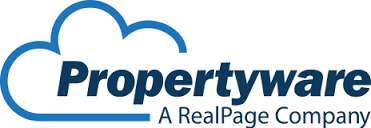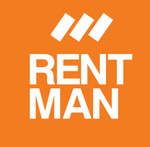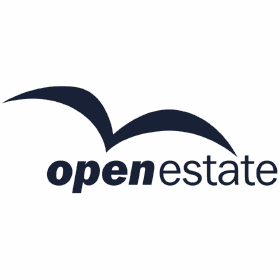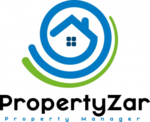Description

Open RealEstate

Propertyware
Comprehensive Overview: Open RealEstate vs Propertyware
To provide a detailed overview of Open RealEstate, Propertyware, and TaskAim, we must first consider that these platforms are used in the real estate and property management industry. Let's examine these products in terms of their primary functions, target markets, market share, and key differentiating factors.
Open RealEstate
a) Primary Functions and Target Markets
- Primary Functions: Open RealEstate is an open-source software solution aimed at creating and managing real estate websites. It facilitates property listings, search functionalities, and allows agency information management. It can be customized to fit different needs, offering features like SEO optimization, payment systems integration, and advanced editing tools.
- Target Markets: The primary market includes real estate agencies, brokers, and developers looking for a customizable and cost-effective solution to establish an online presence without needing extensive technical skills.
b) Market Share and User Base
- Market Share: Given its open-source nature, Open RealEstate may not have the significant market share that well-funded SaaS competitors enjoy. Its appeal is primarily among smaller agencies or tech-savvy businesses that can utilize its customization potential without extensive investments.
- User Base: The user base is diverse, appealing mainly to smaller companies or individual realtors who need a tailored solution or have specific requirements not serviced by mainstream software.
c) Key Differentiating Factors
- Open Source Flexibility: Offers a high level of customization and flexibility, allowing users to modify code to fit specific needs.
- Cost-Effectiveness: Being open-source means lower costs compared to proprietary solutions, which is appealing for startups or smaller businesses.
- Community and Support: As an open-source tool, relies heavily on community-driven support, which can expand functionality through third-party plugins.
Propertyware
a) Primary Functions and Target Markets
- Primary Functions: Propertyware is a cloud-based property management solution that focuses on managing single-family homes, condos, and other individual rental properties. It combines accounting, tenant and lease tracking, maintenance management, and marketing tools into one platform.
- Target Markets: Propertyware is primarily targeted towards property managers and landlords managing single-family residential properties. It caters to medium to large portfolios.
b) Market Share and User Base
- Market Share: Propertyware is known within the niche of single-family home management and has a reasonable share within this segment, although not the largest in the overall property management software market.
- User Base: It is favored by property management firms that handle a substantial portfolio of single-family homes and need a comprehensive, integrated solution for managing various aspects.
c) Key Differentiating Factors
- Focus on Single-Family Homes: Unlike competitors that might target a broader range of property types, Propertyware’s specialization offers tailored functionalities for single-family properties.
- Integrated Accounting and Marketing Tools: Provides robust accounting features and marketing tools, allowing for comprehensive property management from one interface.
- Scalable Solutions: Suitable for businesses managing large portfolios with features that can scale according to business growth.
TaskAim
a) Primary Functions and Target Markets
- Primary Functions: TaskAim is a property management software focusing on task automation, workflow management, and efficient communication among property management teams. It aims to streamline operations by reducing manual interventions and increasing task visibility.
- Target Markets: Property management firms seeking to enhance operational efficiency through automation. This includes commercial and residential property managers looking to improve workflow productivity.
b) Market Share and User Base
- Market Share: TaskAim occupies a smaller niche within the property management space and is less prominent compared to giants in the broader real estate software market. Its market share is growing among companies emphasizing workflow efficiency.
- User Base: The user base is mainly composed of businesses that value task automation and seek a streamlined process for managing properties, tasks, and team communication.
c) Key Differentiating Factors
- Workflow Automation: Strong emphasis on automating repetitive tasks and processes, which can significantly enhance efficiency.
- Communication Tools: Offers enhanced communication capabilities beyond standard property management features, facilitating better team coordination.
- Integration Flexibility: TaskAim can integrate with various other software tools, allowing businesses to tailor their existing tech stack without overhauling it.
Comparison Summary
- Target Market Differences: Open RealEstate is flexible and appeals to a broad mix of smaller real estate businesses. Propertyware specializes in single-family home management, while TaskAim focuses on automation and team efficiency.
- Functional Specificities: Open RealEstate's customization stands out for those needing specific web solutions. Propertyware's strength lies in its comprehensive single-family home management capabilities. TaskAim excels in task management and automation.
- Market Reach: Open RealEstate's reach is wide but less monetized. Propertyware holds a significant market share in its niche, while TaskAim is emerging, targeting firms focused on operational efficiency.
Contact Info

Year founded :
Not Available
Not Available
Not Available
Not Available
Not Available

Year founded :
Not Available
Not Available
Not Available
United States
Not Available
Feature Similarity Breakdown: Open RealEstate, Propertyware
When comparing Open RealEstate, Propertyware, and TaskAim, it's important to focus on their core features, user interfaces, and any unique attributes that distinguish each product. Here’s an overview based on typical characteristics of real estate and property management software solutions they likely have as of the latest data:
Core Features Common to Open RealEstate, Propertyware, and TaskAim
-
Property Listing Management:
- All three platforms provide tools to list and manage property information, including images, descriptions, and pricing details.
-
Tenant and Lease Tracking:
- They offer functionalities to manage tenant information, track lease agreements, and monitor lease expirations.
-
Online Payment Processing:
- Each software includes options for collecting rent and other payments online, facilitating convenient transactions for users.
-
Maintenance Management:
- These platforms typically support managing maintenance requests and work orders, improving property upkeep.
-
Reporting and Analytics:
- Users have access to various financial and operational reports to monitor and analyze property performance.
-
Communication Tools:
- Integrated communication features for interacting with tenants and owners, often through emails or direct messaging.
User Interface Comparison
-
Open RealEstate:
- Generally characterized by straightforward, user-friendly designs with customization options. The interface tends to prioritize ease of use, which suits small to medium-sized real estate businesses.
-
Propertyware:
- Known for its more comprehensive and robust interface, catering primarily to property managers with larger portfolios. It balances functionality with accessibility, although the learning curve can be slightly steeper due to its extensive feature set.
-
TaskAim:
- Typically offers a clean and organized interface aimed at task management and operational efficiency. It is designed to be intuitive, with a focus on streamlined workflow processes.
Unique Features
-
Open RealEstate:
- Open-source flexibility means it can be highly customized according to specific business needs, making it appealing for developers or businesses that require bespoke solutions.
-
Propertyware:
- Features robust accounting tools and integration capabilities. It offers advanced tenant screening and marketing automation features, which are particularly useful for larger property management operations.
-
TaskAim:
- Primarily geared towards task management, this product emphasizes workflow automation and efficiency-enhancing tools that may not be as central in the other platforms. It often includes unique task assignment and progress tracking functionalities.
Each of these platforms has strengths that cater to different segments of the real estate market, and the choice among them would depend on the specific needs and scale of the property management operations in question.
Features

Property Listings Management
Analytics and Reporting
Marketing and SEO Tools
User Experience

Reporting and Analytics
Communication Tools
Tenant Management
Maintenance Management
Financial Tracking
Best Fit Use Cases: Open RealEstate, Propertyware
When evaluating software solutions like Open RealEstate, Propertyware, and TaskAim, it's important to understand how each caters to specific business needs, company sizes, and industry verticals. Here's a breakdown of the best fit use cases for each:
Open RealEstate
a) Best Choice for Businesses or Projects:
- Open RealEstate is an open-source solution designed primarily for real estate businesses looking to create online platforms for listing properties. It's ideal for:
- Small to medium-sized real estate agencies: Those that need a customizable and cost-effective website to showcase their property listings.
- Real estate startups: New entrants in the market who want to build an online presence without substantial initial investment.
- Companies with technical expertise: Firms with in-house developers who can leverage open-source capabilities to tailor the software to specific needs.
d) Catering to Industry Verticals/Company Sizes:
- Best suited for real estate companies or agencies with a clear technological roadmap and the ability to customize open-source projects.
- Fits well with organizations that prefer to avoid licensing fees and can invest in bespoke development to expand functionality.
Propertyware
b) Preferred Option for Scenarios:
- Propertyware is specifically tailored for property management businesses, particularly those dealing with residential properties. It is preferred when:
- Mid-sized to large property management firms: Need comprehensive management solutions for tasks like tracking leases, handling maintenance requests, and tenant screening.
- Multi-family and single-family rental portfolios: Service providers managing diverse portfolios with complex workflows benefit from its robust features.
- Firms needing deep integrations and reporting: Organizations looking for extensive reporting, accounting, and integration capabilities with other business tools.
d) Catering to Industry Verticals/Company Sizes:
- Primarily aimed at property management companies with substantial property volumes.
- Suitable for businesses that require detailed operational tools and customer support to streamline their property management processes.
TaskAim
c) Consideration Over Other Options:
- TaskAim is geared towards task management and collaboration, often used in real estate project management settings. Users should consider TaskAim when:
- Real estate developers and construction projects: Need a platform for managing schedules, tasks, and team collaboration efficiently.
- Cross-departmental collaboration: Companies that need to unify operations across various teams, such as sales, marketing, and back-office support.
- Dynamic project environments: Organizations that operate in fast-paced settings requiring adaptable project management tools.
d) Catering to Industry Verticals/Company Sizes:
- TaskAim can serve a diverse range of industries, though it's particularly useful for real estate development firms and construction companies.
- Applicable to businesses of various sizes requiring an agile project management tool to align tasks and communication in real-time.
In summary, Open RealEstate is best for real estate firms needing a customizable online listing platform. Propertyware excels in comprehensive property management for larger portfolios, while TaskAim is optimal for project management and collaboration in dynamic and development-oriented environments. Each solution aligns with distinct business needs, company sizes, and industry verticals, allowing organizations to choose based on specific operational requirements.
Pricing

Pricing Not Available

Pricing Not Available
Metrics History
Metrics History
Comparing undefined across companies
Conclusion & Final Verdict: Open RealEstate vs Propertyware
When considering property management software like Open RealEstate, Propertyware, and TaskAim, it’s crucial to evaluate them based on features, ease of use, pricing, customer support, and scalability. Based on these factors, here is a conclusion and final verdict:
a) Best Overall Value:
Propertyware often emerges as the best overall value for property managers dealing with single-family properties. It offers a comprehensive suite of features tailored to this niche, robust reporting capabilities, and flexible pricing tiers that can accommodate various sizes of property portfolios.
b) Pros and Cons:
Open RealEstate:
- Pros:
- Open-source flexibility allows for extensive customization.
- Cost-effective for startups and small businesses due to low upfront software costs.
- Good for companies with specific, niche needs and technical expertise.
- Cons:
- Requires technical expertise to set up and maintain.
- Limited support compared to commercial solutions.
- Can be challenging to integrate with other systems.
Propertyware:
- Pros:
- Tailored specifically for single-family property management.
- Strong reporting and financial management tools.
- Excellent customer support and training resources.
- Cons:
- Pricing can escalate with add-ons and growth in the number of units managed.
- May be over-featured for very small property portfolios.
TaskAim:
- Pros:
- Intuitive user interface that is easy to learn and use.
- Good task management and automation features.
- Competitively priced with a focus on improving team efficiency.
- Cons:
- Limited scalability for very large property portfolios.
- Fewer integrations compared to more established competitors.
- Might lack some specialized features needed for growing businesses.
c) Specific Recommendations:
-
For Small to Medium-Sized Enterprises (SMEs): If your business requires a highly customizable and flexible solution and you have the technical resources to support it, Open RealEstate could be a cost-effective choice.
-
For Single-Family Property Managers: Propertyware offers the most comprehensive tools specifically developed for managing single-family house portfolios. It’s the best choice for users wanting a dedicated and powerful platform for that segment.
-
For Users Focused on Task Management: TaskAim stands out with its simplicity and task-focused features. If your main priority is streamlining task management and team collaboration at an affordable price, particularly for smaller teams or portfolios, TaskAim is suitable.
-
Considering Business Growth: If there is an expected growth in your property portfolio, and you anticipate the need for scalability and comprehensive support, Propertyware provides a more robust roadmap for growing businesses.
Ultimately, the decision should be based on the specific needs and structure of your property management operations, taking into account the scale of your properties, the functionality required, and budget constraints. It is recommended that users take advantage of demos and trial periods to ensure the chosen software aligns well with their operational needs before making a long-term commitment.
Add to compare
Add similar companies



